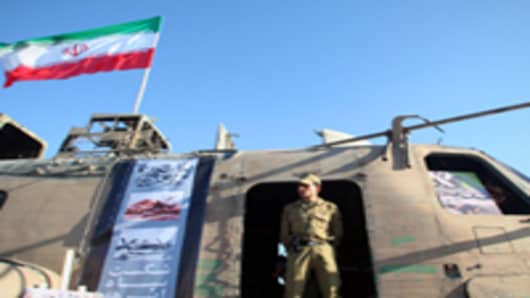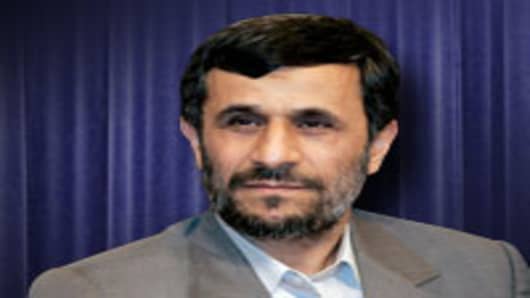The Revolutionary Guard is best known for being Iran's muscle. It helps keep the domestic population in line.
They are also responsible for expanding Iran's Islamic philosophy outside of its borders through propaganda, murder of Iran's opponents and prominent exiles, and terrorism, including direct financial aid and training for Hamas and Hezbollah, the terrorist organizations responsible for killing more Americans than any other group outside of Al Qaeda.
The Revolutionary Guard, however, is also a major force when it comes to controlling Iran's economy. Many Iranians in and out of the country have called the Islamic Revolutionary Guard Corps "Iran's mafia."
Because of the shadowy nature of the Revolutionary Guard, poor record keeping and outright fear, there are no true statistics on exactly what percent of Iran's economy is controlled by the IRGC.
Meir Javedanfar wrote "The Nuclear Sphinx of Iran" and runs a consulting company giving advice on Iran to governments and business that need it. He recently spoke at the State Department.
On how much of Iran's business in controlled by the IRGC, he said, "It is difficult to give an exact estimate. The government controls more than 80 percent of the economy. A conservative estimate would be to say that the IRGC now controls at least half of government owned companies, through its increasing control in the Tehran Stock Exchange, which is the fastest growing in the Middle East."
Alireza Nader of the Rand Corporation wrote, "The Rise of the Pasdaran: Assessing the Domestic Roles of Iran's Revolutionary Guards Corps." He said, "It's really difficult to cite percentages although the number I kept getting is around 68 percent for exports, but I would argue the Revolutionary Guards is the key economic player in Iran and control Iran's official and illicit economy."
In his book, Nader reports the Revolutionary Guard controls a vast amount of Iran's official and black market economies. The IRGC controls investment firms, construction and infrastructure companies, engineering firms, an auto manufacturing company, and even lasik eye surgery offices.
They are involved in every single part of the Iranian economy. In many cases their profits are large as they are favored in winning contracts in part because their bids are lower as they often use cheap IRGC labor.
In addition many of the government officials who award contracts are members of the IRGC or affiliated groups like the Basij (including President Mahmoud Ahmadinejad). The IRGC is extremely well connected and well integrated into the decision making circles in Tehran.
The IRGC's industrial activities kicked in towards the end of the Iran-Iraq War in the late 1980s. The President at the time and the Ayatollah encouraged the IRGC to use economic activity to bolster the IRGC's budget.
Missiles, helicopters, machines guns and explosives are expensive and, their thinking was, if the IRGC was able to make its own money that was certainly a plus for Iran. Experts in and out of Iran say many people in the Islamic Republic now regret the decision because the IRGC has become too powerful.
One member of the Majles (the parliament) was quoted saying IRGC black market activities alone account for at least 12 billion dollars in revenue alone. And the Guard itself accounts for a whopping 68 percent of Iran's total exports (legal and illegal).
One of the best examples of the IRGC in business is a firm called Khatam al-Anbia. It is the Islamic Republic's largest contractor in industrial and development projects—Iran's version of General Electric and the US Army Corps of Engineers combined.
25,000 engineers and staff work for the firm. It has its own internal journal called "Road and Tunnel Magazine." Khatam al-Anbia has been awarded more than 750 contracts in dam building, building construction, oil field building, offshore construction, highways, oil and water pipelines and beyond.
One third of all imported goods in Iran are delivered through the IRGC controlled illegal black market according to another member of the Majles. The IRGC cuts out all competition in this field, jailing and intimidating Iranians dealing in black market goods so the Guard itself has a virtual monopoly.
Watch "The Forbidden Zone," a special series of reports about Iran's economy, companies doing business in Iran, and Iranian investors, on"Street Signs"with Erin Burnett at 2pm ET. Today Erin interviews the top investor in the Tehran Stock Exchange.



